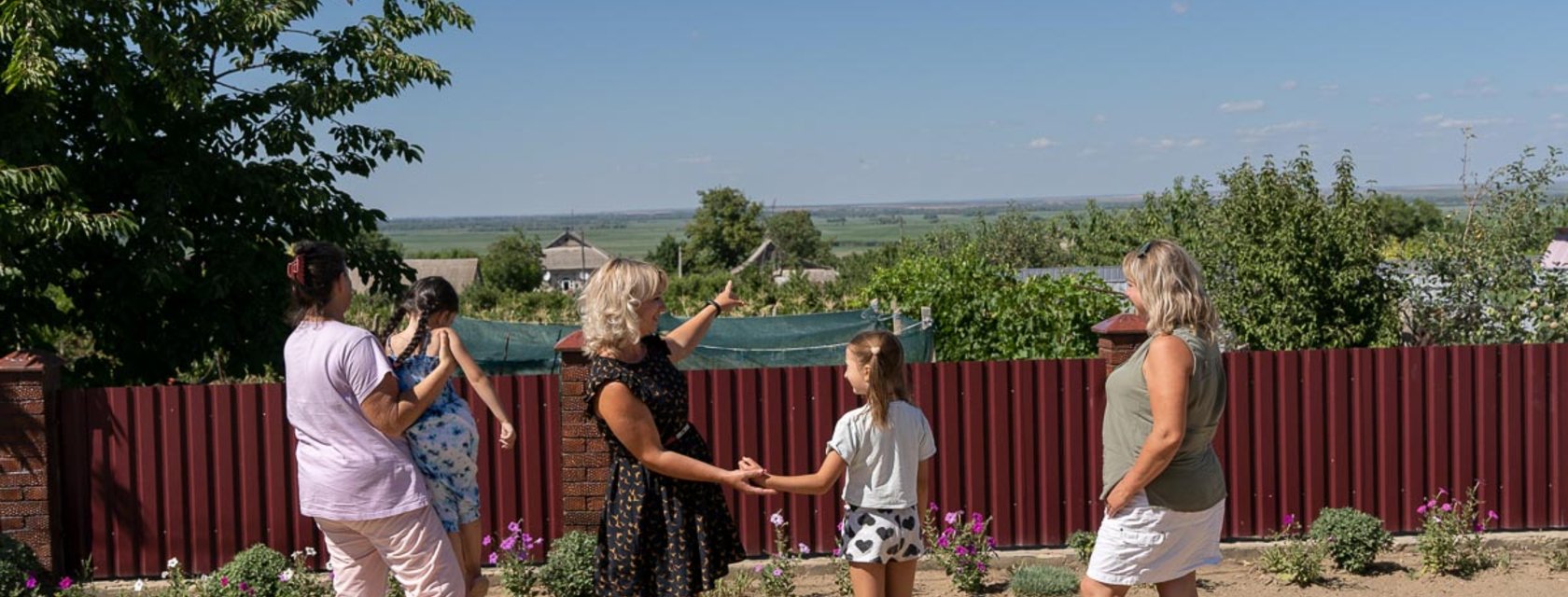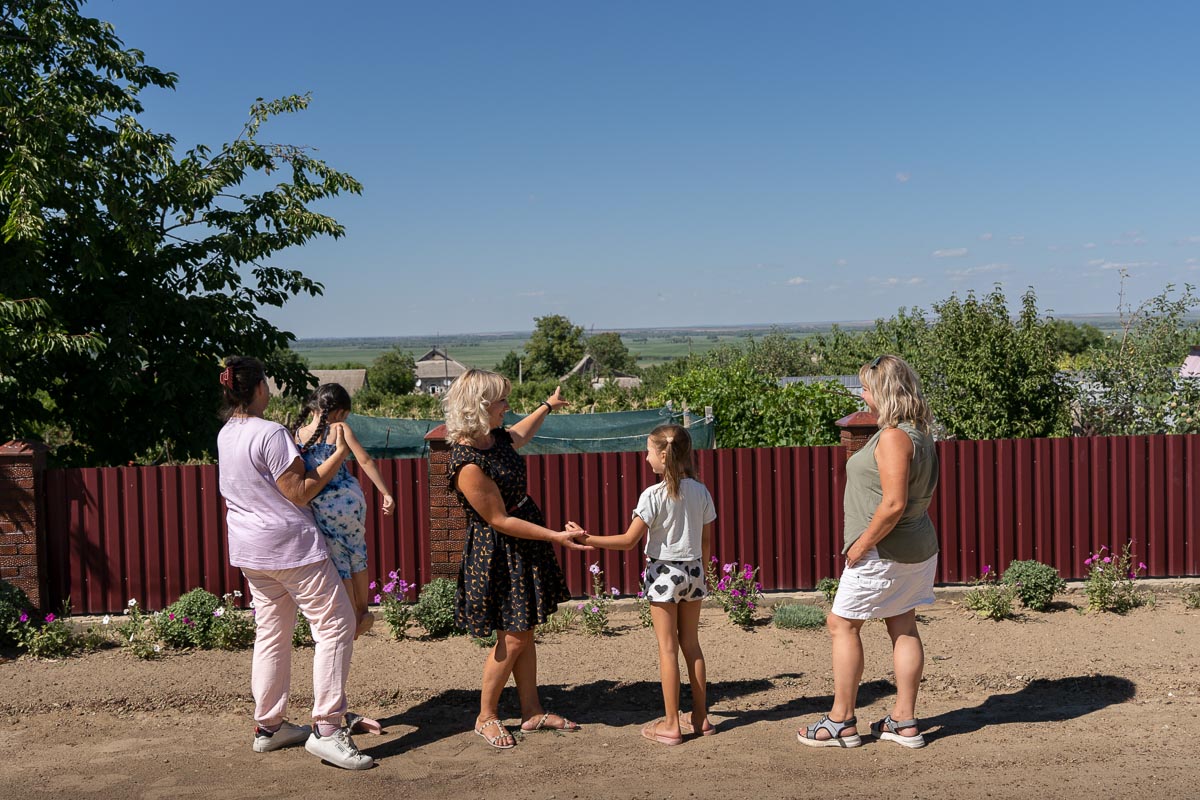The homeland in Ukraine: close and yet so far away
The small Republic of Moldova is one of the poorest countries in Europe. Nevertheless, the people there are sacrificially taking care of refugees from Ukraine. CONCORDIA Social Projects supports them in this.
When the children return home from playing in the afternoon, their mothers pause for a moment. Together they look across to their homeland and think of their husbands and fathers, grandparents, aunts and uncles who stayed in Ukraine. From the hill in the Moldovan border village of Tudora, it is only a few hundred metres to Ukraine. Sometimes the muffled sound of bombs can be heard.
"The escape took forever. Actually, it's only a two-hour drive from Odessa to here. But there was an endless queue at the border and it took ten hours before we were allowed to enter," Inna recalls. "Our situation seemed hopeless. Behind us the bombs were falling, in front of us a muddy road, it was cold and we didn't know what to expect. And then there were people behind the border who welcomed us with blankets and a warm meal. It was like light at the end of a long tunnel."
One of the helpers waiting behind the border is Veronica Mocan. "At that time in March, we were the only ones here to take care of the refugees. The head of our centre, together with her co-workers, managed a truly mammoth task at the beginning of the war. Often they had no more than an hour's sleep. "Mostly mothers came with their children. Although it was winter, many had neither coats nor boots, they had fled head over heels and had only slippers on their feet. Some arrived in the middle of the night. You can't say 'we're off now, come tomorrow', you just have to help."
![[Translate to English:] Gabriela im Zuge der Ukrainehilfe von CONCORDIA Sozialprojekte an der Grenze in Moldau](https://www.concordia.or.at/fileadmin/user_upload/DACH/So_hilft_CONCORDIA/Ukraine/MO-Ukrainehilfe-Grenze-c-ChristianNusch.jpg)
"The fear that the soldiers will invade us too".
Since the Ukraine war broke out in February 2022 and more and more people have been fleeing the embattled areas, we at CONCORDIA have taken on the care of refugees in addition to our regular projects. For Veronica, this was a matter of course. "We were afraid that the soldiers would invade us too and that we might be in the same situation in no time." Today she smiles when she thinks of her packed emergency kit and the escape route she had already worked out.
The situation in Tudora has also calmed down in the meantime. A few kilometres past the border crossing, a small tent city has been set up, where volunteers from various organisations under the leadership of the UN Refugee Agency are caring for the new arrivals. CONCORDIA is the only resident organisation looking after the people who want to stay in the small town until they can return safely. Being close to home is important to Inna. "Here I am close to my family. If something is wrong with my parents or my husband's heart is not right, I can be with them quickly. And when the war is over, we are the first to return home."
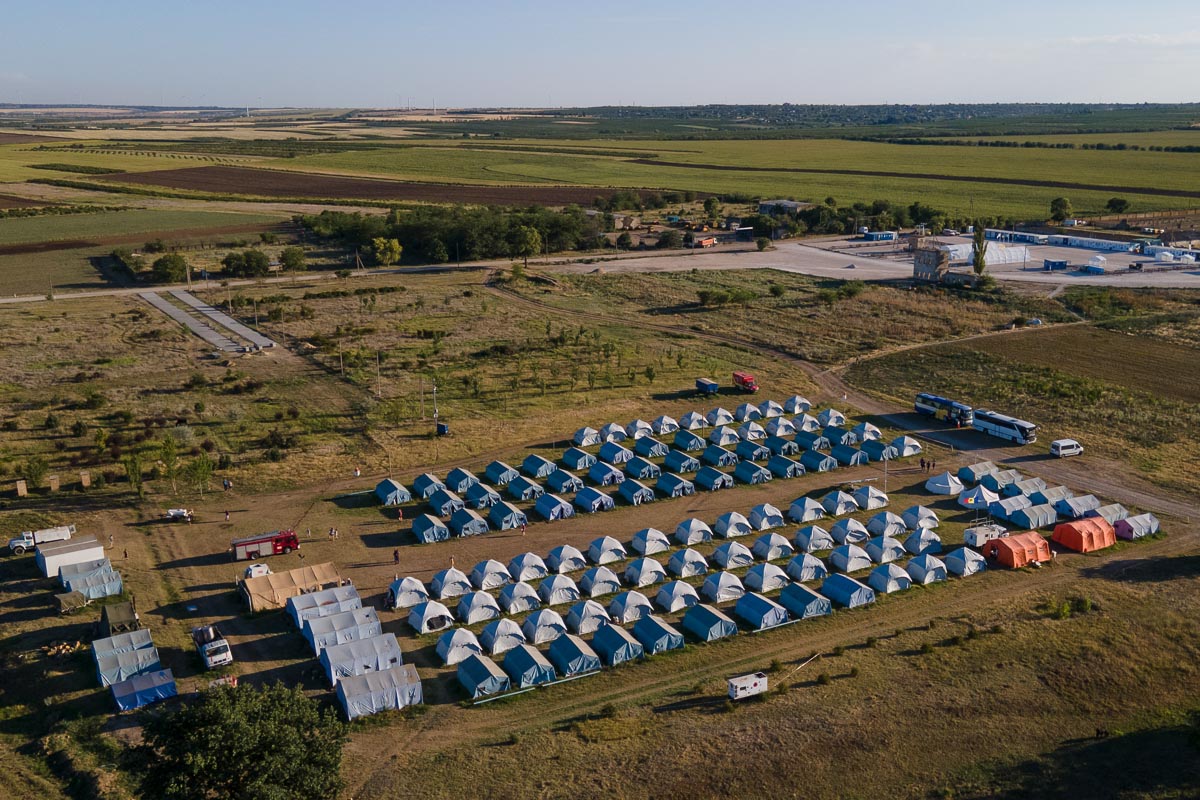
Refugees stick together like family
Instead of accommodating the refugees at home or in the neighbourhood as she did in the beginning, Veronica has now organised accommodation for 34 families. "Welcome, welcome," Inna calls and leads us into the courtyard of a very modest little house with three rooms. In winter it is heated with wood, and the old fitted kitchen is about to collapse. On the wall hangs a Ukrainian flag with the words "God is with us." The four mothers Inna, Alyona, Darya and Yana live here with their total of 5 children. The youngest is four, the oldest 13 years old. Before they fled Ukraine, the four families did not know each other. Today, they have gone from being a community in need to friends, a very special family in which everyone looks after everyone else.
They all come from Odessa, a modern big city. Now they have suddenly become villagers, growing tomatoes and melons in the garden. How do the four mothers, who look a little out of place in their fancy clothes, cope? "None of that matters, the important thing is that we are safe," says Yana. "We have what we need and the people in the village are incredibly kind and support us in any way they can." As if to prove it, her neighbour Pavel comes by at that moment, strokes one of the girls on the head and puts a basket of freshly harvested cherries on the table. The solidarity of the village population with those who have lost everything is great - even though, or perhaps precisely because, all the people here have little.
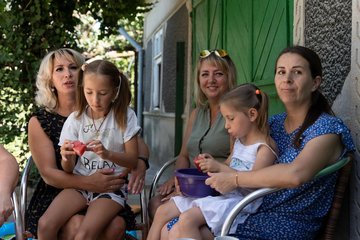
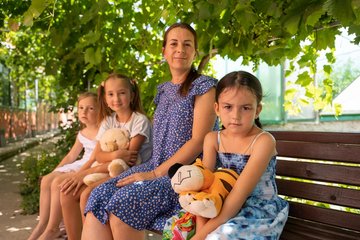
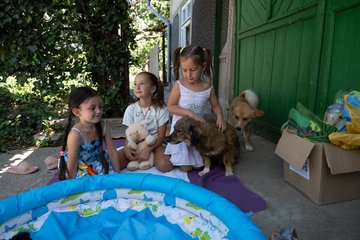
"Here, I don't always have to think about the bombs".
Because Lilya misses her father so terribly, Darya drove over to Odessa with her daughter when things were a little quieter for a short while. "But I was so scared because of the bombs, I couldn't stand it," says the eight-year-old. "Everything is good here, I feel safe here and I don't have to think about the bombs all the time."
Like the other children, Lilya goes to the CONCORDIA Social Projects Centre every day. In the bright, friendly rooms there is a small dining room, computers, a painting and craft corner. There is a trampoline in the garden and a swimming pond in front of the house, which is currently being cleaned by all the children.
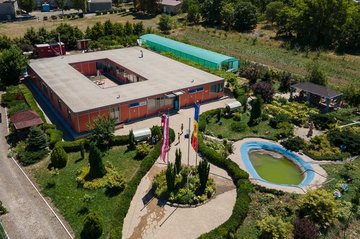
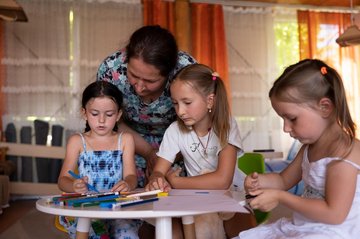
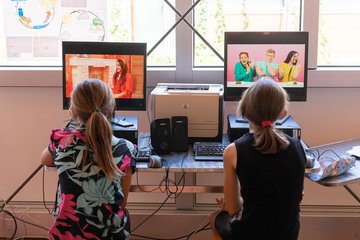
"In the beginning, you could see exactly which children were refugees," Veronica remembers. "They cried a lot, were closed, sad and disturbed. Now you can't tell them apart. They all play together, invite each other into their homes, have become friends."
Our centre is also an important contact point for the adult refugees. Not only because they can use the washing machine, but especially because all the mothers meet here every week and can talk about their problems and worries. "With this wonderful support, we will somehow get through the war," says Yana. "And we thank everyone who helps that we can be safe here with our children." wunderbaren Unterstützung werden wir den Krieg schon irgendwie überstehen“, sagt Yana. „Und wir danken allen, die mithelfen, dass wir hier mit unseren Kindern in Sicherheit sein dürfen.“
Text: Katharina Nickoleit, Photo: Christian Nusch


